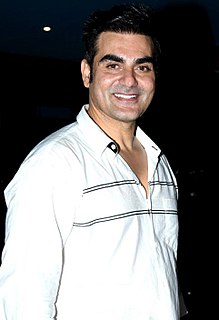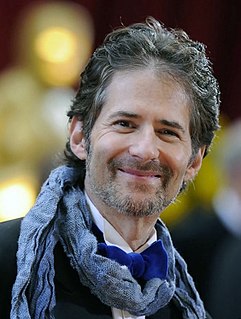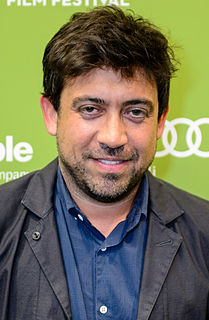A Quote by Christopher Nolan
I've done really well so far in my career by trusting the audience to be as dissatisfied with convention as I am, as a film-goer. You want to go see a film that surprises you in some way.
Related Quotes
For me, as a film goer, I like nothing more than to sit in the cinema, have the lights go down and not know what I'm about to see or unfold on-screen. Every time we go to make a film, we do everything we can to try to systematise things so we're able to make the film in private, so that when it's finished it's up to the audience to make of it what they will.
Silence Of The Lambs? is a ?fantastic? film. It's a horror film, and it's an incredibly well-told film that is about point of view in such a unique way. The way that film is shot, the way the eyelines are so close, if not directly into camera, betrays an intimacy with the characters and the audience.
I think a lot of people go into filmmaking thinking, "How can I make a career?" And so when they make their first film, they make it thinking, "Well, this'll be the one that gets me to the place where I can make the second film the way I want to make it, and that'll get me to the place where I can make $100 million on the third film." And I thought, "Well, if I put sustainability at the bottom of my priority list, then what opportunities is that going to free me up to pursue?" And that's what I've always done.
I think the biggest challenge was being aware of a certain audience that was going to see this film [lone survivor]. There's a big difference from a typical movie, journalists and critics and film goers that go see it find that, that's the general experience you have as a filmmaker. So that just kind of proves my point that there's a really different audience.
Rain Man certainly didn't test really well. If you look at it carefully, you have a disease autism they didn't understand back then, they didn't know in the test audience whether it's okay to laugh or not laugh, because it's a film that's done in a way where, "Well, maybe I'm not supposed to laugh." At the end of the film, Dustin Hoffman gets on the train and doesn't even acknowledge his brother. Not even a glance, nothing. That's why the studio said, "Can't you just have him look at Tom Cruise at the end of the film?"
If I hear a film clip, or I happen to see some image from a film - you go to a film festival, and they show some clip of the movies you've been in, most of the time I sit there and go, "Oh God, I should have... should have... that was terrible." But I think that's a natural part of this work, because really, your work is never over. Of course I can leave it alone and walk off the set and never think about it again when it's done. But your work is really ongoing all the time.
You make a film and you can't really pick the way it's put to the public. You control the content, but the way it's marketed, or the poster, or what they're telling the public about the film, it's beyond you. Some people don't even see them, because they think they already know it. That can be frustrating, when something you've done is marketed in a way you think is antithetical to what it is.
When I do a film score, I am basically nothing more than a fancy pencil for hire. I don't own any of the music when I am - it belongs to the film company - and likewise, when I am done, even if I come up with something astounding that I may want to revisit... in the world of film composition, you can't do that.
I am moving towards that zone where I don't want to be a replaceable name. This is my goal. I want to hear from the industry that, 'You are the only one who can do this. We will not go ahead with the project if you don't do this.' And I want to hear from the audience that it is worth watching a film that I have done.
I am aware that I have been incredibly fortunate in my life to work with the people that I have worked with and pursue the projects that I have been able to do. There are so many films that I have done that I really, as a film person, as a film fan, that I like. And that is a nice place to think of a career in.




































